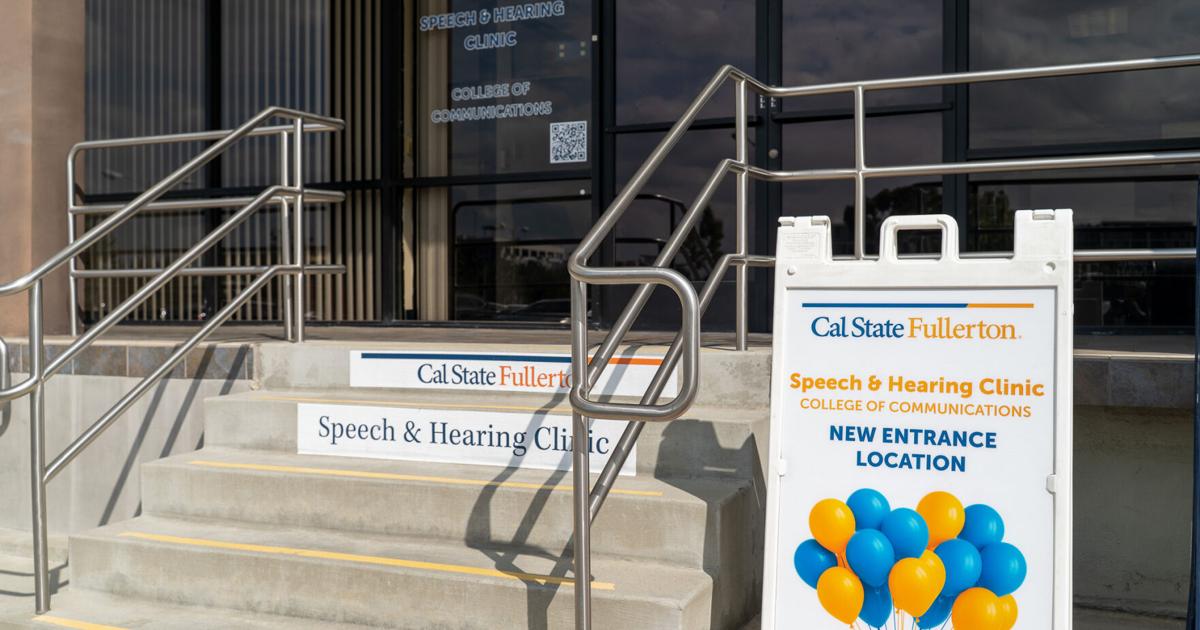Cal State Fullerton’s Hearing and Speech Clinic has expanded its office, providing a more accessible entrance for students and staff.
The update provides a brighter waiting room, a new doorway next to the wheelchair ramp, designated client parking and a visible entrance, addressing long-standing accessibility issues while strengthening its mission of offering free therapy to the community.
The clinic also doubles as a training ground for graduate students, who log hundreds of clinical hours toward state and national certification.
Sherri Wolff, the clinic director, has long guided students and staff through the logistics of managing therapy sessions in tight quarters. She explains the expansion into their new office, CP 100, finally provides a space that feels welcoming and functional.
“It’s very nice, it’s just bright,” Wolff said. “There’s no windows or anything in the old waiting room, so this is so bright.”
For HyeKyeung Seung, professor and chair of the Department of Communication Sciences and Disorders, the expansion reflects a broader academic mission.
She emphasized that the clinic is not only a community service hub but also a cornerstone of the graduate program.
“Our master’s students are required to finish academic courses along with clinical practicum, so they have to finish five required clinical practicum rotations,” Seung said. “So our clinical practicum on campus here prepares the student to be ready for their second year practicum in externship.”
The most immediate change, Wolff said, is how much easier it is for clients to find the clinic.
“It was hard to find suite 150, especially for brand new clients. A lot of times, they would be walking around and not know where to go. This is so much easier to see. The parking is much more convenient,” Wolff said.
The first-floor space in CP 100 was previously occupied by Student Business Services, which was moved to the second and third floors of College Park in late summer.
In a statement to the Daily Titan, the university confirmed that the services SBS offers and access to students have not changed with the relocation, calling the move “a joint effort in collaboration with Academic Affairs. The clinic is a valuable academic and community resource that was in need of additional space.”
Families have already voiced appreciation for the designated spaces, which were more than two decades in the making, according to Seung and Wolff.
Seung added that families continue to show gratitude to the clinic for the long-awaited parking. “We hear from the client’s family. They are very thankful getting this spot,” Seung said.
Beyond the new space, the clinic continues to provide therapy for both children and adults with a range of communication disorders, including speech, language, fluency and voice challenges, as well as conditions linked to Autism and Down Syndrome, according to Wolff.
Since 2020, it has also offered a gender-affirming voice program that supports transgender clients with specialized services.
The speech and hearing clinic also operates on a donation basis.
“We provide the services at no cost,” Wolff said. “If clients want to donate, they can, but they don’t have to.”
With the expansion complete, Seung said they plan to add new furniture, a student lounge and host an open house during the spring semester.

